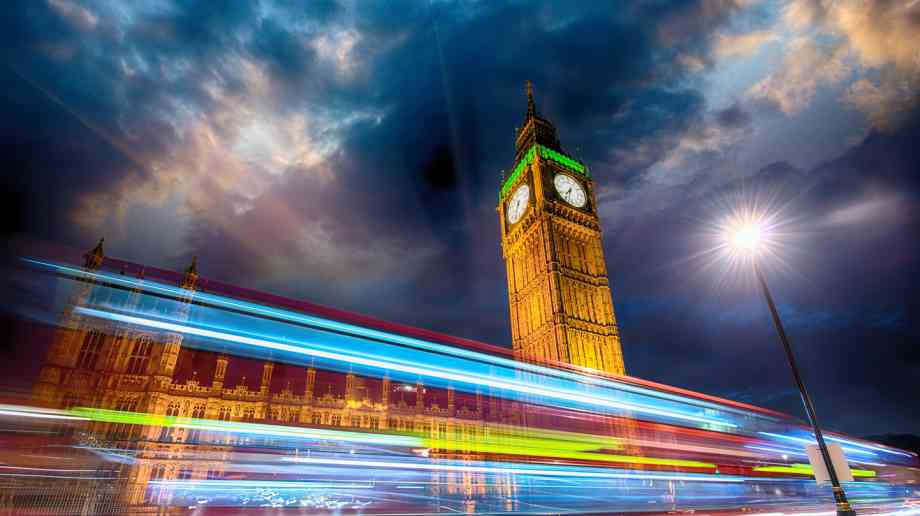Sue Robb of 4Children talks to Julie Laughton and Alison Britton from the Department for Education about the role of childminders in delivering the 30 hours free entitlement.
No majority for Tories in General Election

Theresa May’s decision to hold a snap election has resulted in a hung Parliament, after the Conservative Party fell short of the 326 seats needed for a majority in the Commons.
Holding the election on 8 June in an attempt to strengthen her hand in EU Brexit negotiations, the Prime Minister has overseen a loss of Conservative seats across the country, rather then increasing her majority as many predicted a couple of months ago.
With four seats left to announce at the time of writing, it is widely expected that the Conservative’s will have won 318 seats, 13 short of its total in 2015 and short of an overall majority. In what must have been a shock for Tory leadership, seven Conservative ministers were among those who lost their constituency seat, with Financial Secretary to the Treasury Jane Ellison, Housing Minister Gavin Barwell, Charities Minister Rob Wilson, Cabinet Office Minister Ben Gummer, former Northern Powerhouse Minister James Wharton, Health Minister Nicola Blackwood and Treasury Minister Simon Kirby all losing their seats.
In one of the closer counts of the night, Home Secretary Amber Rudd hung on in Hastings and Rye, after a recount, by just 346 votes, while May herself was re-elected as Maidenhead MP with 64.8 per cent of the vote, defiantly saying that the country needed ‘a period of stability’.
It is not all bleak news for Theresa May’s party though, as the Conservative’s have won 12 seats off of the Scottish national Party, who remain the largest party in Scotland, despite then Scottish Tory surge. Former SNP leader and former First Minister Alex Salmond was one of those SNP candidates unseated, losing his Gordon seat to the Conservatives' Colin Clark on swing of 20 per cent. SNP Westminster leader Angus Robertson also lost out in Moray.
On the other hand, Jeremy Corbyn, the Labour leader who has campaigned with a very public service-centred manifesto, has seen his party gain (at least) 29 seats, 23 of which were won from previously Conservative held seats.
Upon being re-elected to his Islington North seat, Corbyn said that people have had ‘quite enough of austerity politics’, before urging the Prime Minister to ‘go and make way for a government that is truly representative of this country’.
The Liberal Democrats have re-secured some of the seats that they dramatically lost in 2015, but enjoyed a mixed night of results. Leading party figures, such as Vince Cable and Ed Davey have re-emerged in the Liberal Democrat dominated South West London - although Sarah Olney marginally lost her recently gained Richmond Park seat to Conservative Zac Goldsmith by a mere 45 seats. Former party leader and Deputy Prime Minister Nick Clegg also lost his Sheffield Hallam to labour’s Jared O’Mara, in what was a surprise victory, while party leader Tim Farron retained his Westmoreland and Lonsdale seat. Prominent party figure and local health campaigner Norman Lamb also retained his Norfolk North seat.
In other news, Green Party co-leader Caroline Lucas increased her majority in Brighton Pavillion, while UKIP leader Paul Nutgall came third in Boston and Skegness, gaining only 3,308 votes.
Turnout for the 8 June election is up by two per cent to 69 per cent - the highest since 1997. A record number of female MPs have also been elected, with more than 200 women in elected to this Parliament, outnumbering the 196 women elected in 2015.
Company Focus
Just Lanyards is a subsidiary name of Gifts 2 Impress Limited, who have been trading for over 25 years, we therefore pride ourselves in having endless experience covering all aspects of the promotional merchandise industry.
Event Diary
UKREiiF has quickly become a must-attend in the industry calendar for Government departments and local authorities.
The multi-award-winning UK Construction Week (UKCW), is the UK’s biggest trade event for the built environment that connects the whole supply chain to be the catalyst for growth and positive change in the industry.
Supplier Profiles
Geo Energy
At GeoEnergy Design, we're on a mission to disrupt the traditional way heating and cooling ha
Latest Features
Professor Harith Alani, director of the Knowledge Management Institute at the Open University explains how AI can be used for good and bad.
Alex Lawrence, head of health & social care, techUK sets out techUK’s Five Point Plan for CareTech.

















